Steven Slate's got a great set up in the Hollywood Hills of Los Angeles. He shares the location with mastering engineer Howie Weinberg whose studio is next door, and it's got a bit of a woodsy vibe to it.
His company was started in 2006 as Yellow Matter Entertainment, which now owns Steven Slate Drums, Slate Pro Audio, which is a hardware company that makes the Dragon Dynamic Processor and the Fox Mic Pre, and Slate Digital, which makes a bunch of excellent analog emulation and mastering plug-ins. All of his products have a bold, old-school with a slight touch of gothic style.
He has built the various businesses through vertical integration. He started as a drummer, then recording drums in studios. He then began marketing the recordings he made of the drums, and then eventually came to marketing the tools he used in the making of the recordings. It's not an unusual story in an industry filled with creative people who use the tools they create.
He loves to do demos and he loves going to see live music. In fact playing music live has never been more important to musicians. With piracy and the death of the CD it's harder and harder to make a living from recordings. You've got to be able reproduce your music live. If you can't people may come to see you once, but they won't come back a second time.
You have to acknowledge a company when they work hard and do cool and useful stuff.
Did you do any formal study of music?
I didn't actually study music theory until I was in college, but I got into music at a very young age and played in a lot of bands. I was a guitar player at first, and everything followed from that. I wanted to play drums and bass, everything.
What kind of music?
The Beatles was the first band that really caught me. I had always thought of them as some corny band that my parents listened to. My friends were listening to Ice Cube and Cypress Hill, but one day a friend invited me over and played me Sgt. Pepper and I remember thinking wow, this is really cool. And then I saw "A Hard Days Night" and I remember them running away from crowds of girls. I was twelve years old at the time and I thought to myself, I've got to get into this music thing. I wasn't going to be a football star for sure, so I figured this was my ticket to earning the interest of the opposite sex.
So, were you in bands playing Beatles tunes?
Well, the very first thing I learned on guitar was the lead line to Day Tripper. I was so proud of myself because I had picked it out by ear. After that I got some lessons and got a little more technical with it. On the other hand I never had drum lessons and you can tell that if you watch me play… (chuckles).
I love playing and I still have a band today. In fact our drummer uses V-Drums to play the Steven Slate Drums 4.
Of course! What led to you starting your company?
Well, one of the first things you realize when you decide you want to be in the music business is that you have to record your songs. And once I started doing that it just took a hold of me.
I had a Yamaha cassette four track and I just wore it out. When I was a teenager I was fascinated with recording studios, every aspect, the gear, the technique, the terminology, and the people that would make these records. But drums especially did it for me, really inspired me. It's really hard to explain to anyone what goes on in my brain when it comes to these drums. To me hearing a new set of drums is like having a new girlfriend. It's a whole new experience.
I started working in studios and then eventually came to own my own studio in Boston. Then I heard Nirvana's "Nevermind" album and that just sent me off the deep end. It was recorded by Butch Vig and mixed by Andy Wallace. After hearing that record and those powerful sounding drums, I was so inspired. I wanted every drum sound that I created to be reminiscent of that Nirvana sound. I knew I couldn't get it with my crappy drums so I started borrowing or renting drums and making samples and then processing them to sound like the Nevermind drums. Then every session I would work on at my Boston studio would have the drums replaced with those samples. The drummers began to hate me. I thought I was doing them a favor! It was a good lesson for me.
Were you using Pro Tools at the time?
No. I was using Tascam DA-38s. This was closer to the beginning of the whole migration to DAWs for commercial studios. Pro Tools hadn't quite taken off yet because unless you had heavy-duty dollars to spend on a TDM system there was too much latency. But when it came time to make the drum samples, I used a friend's MCI JH-24 2" tape machine. So when I moved to LA I had a disk full of drum samples that I had. I copied them off to 100 CDRs and labeled them "Steven Slate Drum Samples". I started sneaking into Grammy parties and handing them out to every producer and recording engineer that I met. After a while people started calling me and asking if I could do custom work for them.
Who were some of the earliest adopters?
One of the biggest first guys I remember was Mike Shipley, who I was a huge fan of. He did most of mixing for Mutt Lange. Everything from ACDC's Back in Black, to Nickleback, to Shania Twain. Jay Baumgardner was another as well as Chris Lord-Alge. It was an exciting time.
I remember sitting down with Mike for the first time in 2005 or 2006, giving him some samples and talking about what he wanted and how he wanted it done. Mike really liked a lot of big lows in his kicks and really low tuned smacky snares. Overall, I realized that if I premixed the samples, the pros were happier because it allowed them to work faster.
When did the company start?
So the change happened one day when I was listening to the radio and realizing that there were all these records that were using my drum samples, but I was still having problems paying the rent. So I decided to see what would happen if I released the samples publicly. I was hoping people would be willing to pay for them. My first marketing campaign was really simple: "These are the sounds that are already being used on hit records." The message got out, and all of a sudden I was in the pro audio business. That was around 2006.
Was Kontakt the first engine?
No. At first everything was just hits. Not even that many. Just 4-5 hits per drum, but it was usable. Everything was recorded to 2" tape so it had a nice fat sound and I used a bit of EQ and compression to make sure they would lay right in a mix. I still have the original disks, but I redid everything for the first public release.
You have your own engine now. Why did you do that?
Kontakt was a great place to start when it came to offering our drum samples as a virtual instrument. But given that we had little control over the software since we didn't make the software, it made it difficult to offer the workflow and features that we desired. So we built SSD4 from the ground up to be a powerful and easy to use drum instrument that would give us complete control. It's been an extremely successful product.
What kind of mics would you use, say for the kick drum?
I like the old AKG D12s for picking up some of the smack. The Sennheiser E602 has a nice bouncy top end to it. I'll use a Yamaha sub kick and Neumann U47 on the outside.
I had this nice rack that consisted of a Neve 1081, two APIs, a 550, and a 560, a Pultec EQ that the high end didn't work, but the low-end was the best I've ever heard, like magic. These were all wired through an SSL compressor / distressor and an 1176 all hard-wired together. That's how I processed everything originally.
Warning: Don't try this at home, kids...
Do you still use all that analog gear?
Now I use mostly plugins but I do patch in my hardware piece, the Slate Pro Audio DRAGON dynamic processor. But the plugins I like are the Virtual Console Collection, RC-Tube, Virtual Tape Machines, and then some of the offerings by Waves, UA, and Softube.
Did you have any formal business training before you started your company?
I was a music business major in college, which means I took a lot of business courses. I think the schooling part is good for about 50% of what you need to know. The rest comes from experience, and from the lessons you learn from being a customer.
I'll often look at business's that I deal with as a customer and think to myself, what are they doing that is making me happy and therefore, loyal to them? What are they doing poorly that makes me not want to do business with them? Thinking as a customer has really helped me build a better business. I've had really bad experiences with companies that I will never buy another product from, so I've promised myself not to run a company like that.
So we focus a lot of energy and trying to be fair to the customer. To me that means with the way we communicate, our price, our after sale support, and we try to make everyone happy.
Are there any particular companies that have impressed you in this way?
I think one would be GoDaddy. I really like the fact that it's possible to get a human being on the phone and they went out of their way to help me when I had a problem. I like their bold marketing style too. Their CEO even has a business blog that I have found to be useful so I'm really impressed with them.
If I had to name a bad one I would say Time Warner, which is my former cable company. I hope I never have to deal with them again.
What about the music products industry?
I haven't had any bad experiences I can think of in our industry, but if I had to choose a company it would be Lynx. I run an Aurora here in the studio and they are always on top of it if I need help.
How would you summarize the trends with the music technology industry that have occurred since you guys first started? What's better?
Well, in terms of trends there the obvious shift to software. My most successful product to date has been the Virtual Console Collection that models various console strips. It was developed by Slate Digital, which is a partnership I have with Fabrice Gabriel. That's where we do all the DSP stuff like Trigger, Virtual Tape Machines, and the FG-X Mastering processor.
The FG-X came out because, as a fan of great drum sounds, I am big into transients and their effect on the final mix. Most mastering limiters were making my mixes louder at the expense of crushing the drum punch. So the FG-X can make mixes louder but preserve the punch and dynamics through a special algorithm.
I feel really lucky that am in a field where I get to make tools and use them, and pay the bills too. Since starting the various companies I've tried to be active as a musician and sound engineer. I've mixed and mastered a lot of different records and I am always looking for new bands (Garrett Bradford) as well as recording older musicians (George Lynch). In fact a lot of my products ideas come up when I'm working and I think, "Gee, I wish I could do this…".
One of the greatest advantages to mixing digital is the ability to do instant and perfect recalls. It used to be that an artist would call me up and say "Can you send me a mix with the background vocals up 2 dB" and I would say, "OK, give me a day." Now I can do it while we're talking on the phone. That's technology!.
But the most rewarding thing about all this is that a passionate musician, songwriter, or producer can make really great sounding music without having to spend tens of thousands of dollars. Rather than book big studios, music can now be made in garages and bedrooms. When I started I was using my 4-track Yamaha cassette recorder and though I made a lot of music with it, I was never satisfied with what came out. If I was 14-15 years old today I could use Garage Band on my Mac and far surpass what I could do when I was that age.
What's not so good?
I think some people take advantage of the tools in a way reflects poorly on the music industry. People can easily cover up a lack of true musicianship. I really believe that playing live needs to be part of the package and I think it's sad when someone can't reproduce their music on stage. Maybe it's just creating a new genre and time will tell, but give me a band like Muse. I saw them live and they were better than the record!.
What is your biggest business challenge today? Opportunities?
Obviously piracy is a problem. People don't understand how hard it is to make software and then support it. The VCC series took a year and half to develop.
In terms of opportunities, there are so many. Each year, there are more people recording and producing music, and they need great tools to help them.
Any unusual technical challenges?
Replicating analog circuits in the digital domain is a very complex process. In fact Fabrice calls the algorithm in our new Tape Modeling plug-ins "Algoricide" or "Algorapocalypse.".

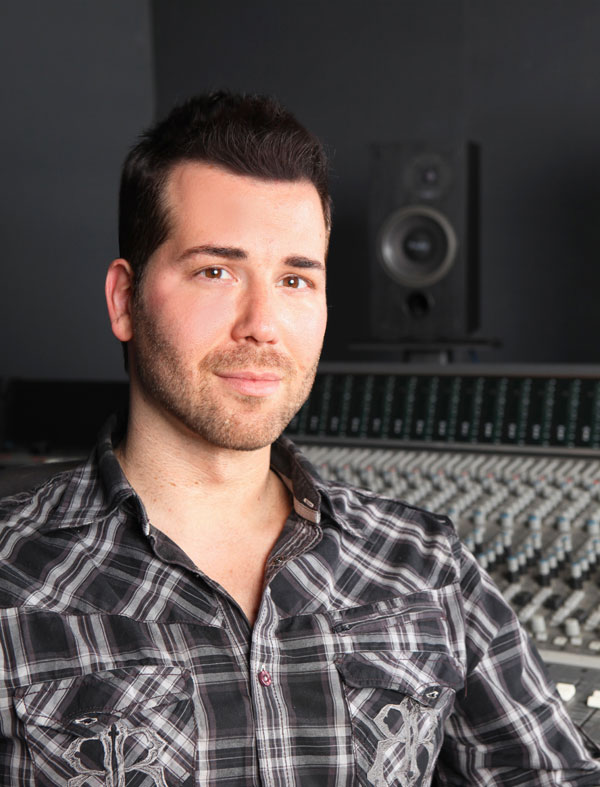

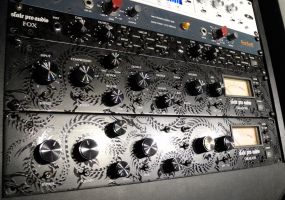
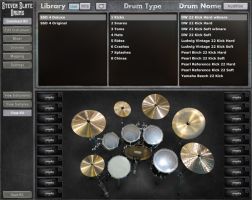
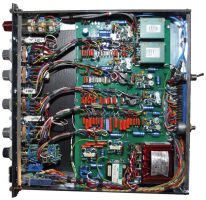
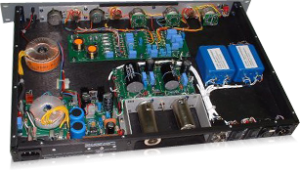


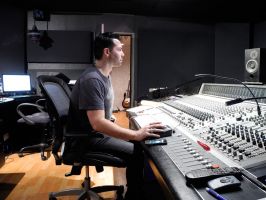


 Other Related News
Other Related News










